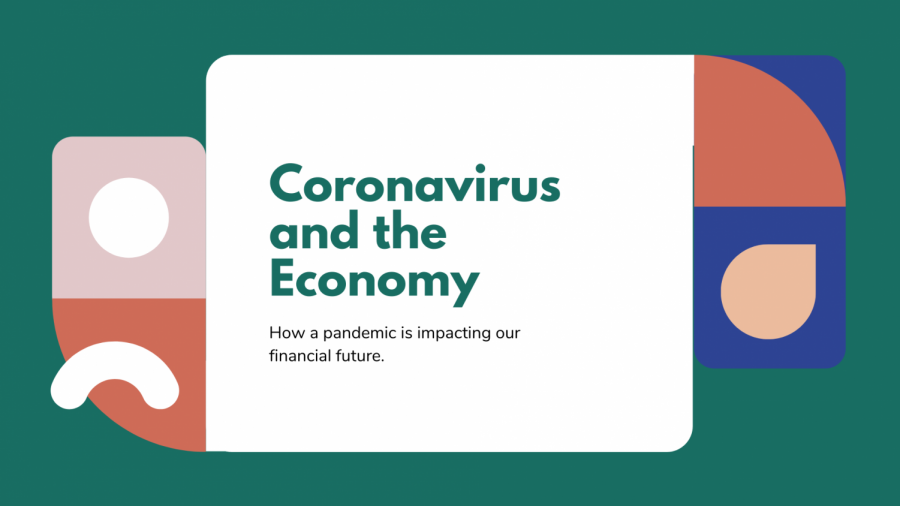How COVID-19 is impacting the economy
Photo Illustration by Eli Weitzman ('20)
All around the world, COVID-19 has had a negative impact on the economy.
COVID-19, commonly referred to as the coronavirus has had numerous effects across the globe. According to the World Health Organization, what started as an outbreak in Hubei province, China, has made its way to at least 140 countries (updated by 3/17/20). While the physical effects of the virus have created worldwide turmoil, perhaps the second greatest concern for countries are the effects of coronavirus on their economy.
Even with a quick Google search of “stock market this week,” headlines from Los Angeles Times and ABC News pop up with “Coronavirus brings stock market its worst day since 1987”.
Well-known companies such as Amazon and Apple have dropped between 8-9.9% over concerns with their supply chains and connections to China. Public parks such as Disneyland plan to be closed until the end of the month, although the Disney cooperation will continue to pay their employees at the Anaheim resort.
Airlines have been impacted immensely by the virus. On Thursday, March 12, 2020, Spirit Airlines suffered a 33% drop. The International Air Transport Association has stated that the airline industry could lose up to 113 billion dollars in 2020 because of the hysteria surrounding the coronavirus. Flights have also been significantly cheaper.
According to Vox, (as of March 10, 2020) a round-trip from Boston to Barcelona totals to only 196 dollars, compared to the usual 681 dollar flight. Since many news channels and Centers for Disease Control and Prevention have advised people to avoid unnecessary traveling, airlines have received a large drop in revenue.
On the flip side, stores such as Target and Walmart sold out of hand sanitizer and disinfectant wipes. Companies like Purell and Clorox have skyrocketed in sales. The virus has created a worldwide demand for these items, and therefore these companies are reaping the economic benefits.
Many employees also fear unemployment during this financial crisis. Since many businesses are low in sales, certain companies may find it in their best interest to lay off some of their workers.
According to MarketsInsider, the S&P 500 (the 500 U.S. companies with the greatest total stock value) have dropped by 11 percent in five days. This is the worst drop in S&P 500 since October 2008. S&P 500 is a good indicator of how the U.S. economy is doing.
President Donald Trump mentioned that the nation may be heading in the direction of a possible recession. Pantheon Macroeconomics says that 39 percent of the U.S. economy is made up of non-essential spending. With constant urges from educated officials, many people are limiting their non-essential spending habits.
Furthermore, in many U.S. states, bars and restaurants have been ordered to close. Massachusetts for example, has all restaurants and bars closed for a month.
The New York Times shed some light on The White House’s current spending plans. They wrote: The White House is asking Congress to allocate 500 billion dollars for two payment waves going towards American taxpayers, and 300 billion dollars going towards aiding small businesses. Their outline states plans for spending one trillion dollars for all programs, including helping the airline industry and loans for other failing parts of the economy during this time.
While the economy is forever changing, the coronavirus has had a notorious effect on it thus far.


